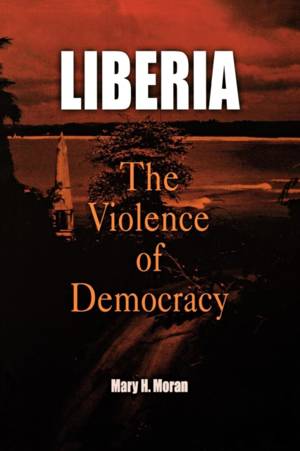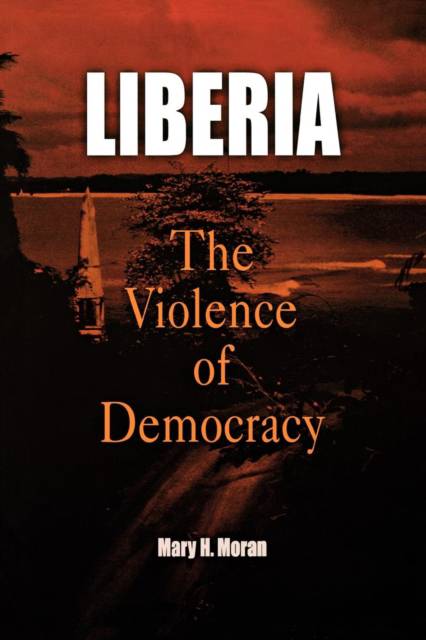
- Retrait gratuit dans votre magasin Club
- 7.000.000 titres dans notre catalogue
- Payer en toute sécurité
- Toujours un magasin près de chez vous
- Retrait gratuit dans votre magasin Club
- 7.000.0000 titres dans notre catalogue
- Payer en toute sécurité
- Toujours un magasin près de chez vous
Description
Liberia The Violence of Democracy Mary H. Moran "Moran's elegant and passionate study of the violence inherent in democracy represents an important contribution to the anthropological project of interrogating the categorical distinction between 'war' and 'peace.'"--Journal of the Royal Anthropological Institute "Drawing on the author's ethnographic fieldwork in a Glebo community outside Harper, Liberia in the early 1980s, and her continued contact with Liberians in West Africa and in the diaspora, Liberia: The Violence of Democracy takes aim at the popular and scholarly tendency to treat violence and representative democracy as polar opposites. . . .Moran offers a compelling Africanist case study to be read in conjunction with the Europeanist political philosophy of thinkers like Jacques Rancière or Giorgio Agamben. This is, however, an extremely accessible book, and its greatest contribution may come if and when it is picked up by policymakers and the staff of international NGOs."--Journal of Contemporary African Studies Liberia, a small West African country that has been wracked by violence and civil war since 1989, seems a paradoxical place in which to examine questions of democracy and popular participation. Yet Liberia is also the oldest republic in Africa, having become independent in 1847 after colonization by an American philanthropic organization as a refuge for "Free People of Color" from the United States. Many analysts have attributed the violent upheaval and state collapse Liberia experienced in the 1980s and 1990s to a lack of democratic institutions and long-standing patterns of autocracy, secrecy, and lack of transparency. Liberia: The Violence of Democracy is a response, from an anthropological perspective, to the literature on neopatrimonialism in Africa. Mary H. Moran argues that democracy is not a foreign import into Africa but that essential aspects of what we in the West consider democratic values are part of the indigenous African traditions of legitimacy and political process. In the case of Liberia, these democratic traditions include institutionalized checks and balances operating at the local level that allow for the voices of structural subordinates (women and younger men) to be heard and be effective in making claims. Moran maintains that the violence and state collapse that have beset Liberia and the surrounding region in the past two decades cannot be attributed to ancient tribal hatreds or neopatrimonial leaders who are simply a modern version of traditional chiefs. Rather, democracy and violence are intersecting themes in Liberian history that have manifested themselves in numerous contexts over the years. Moran challenges many assumptions about Africa as a continent and speaks in an impassioned voice about the meanings of democracy and violence within Liberia. Mary H. Moran is Professor of Anthropology and Africana and Latin American Studies at Colgate University. She is the author of Civilized Women: Gender and Prestige in Southeastern Liberia. The Ethnography of Political Violence 2005 200 pages 6 x 9 15 illus. ISBN 978-0-8122-2028-5 Paper $24.95s £16.50 ISBN 978-0-8122-0284-7 Ebook $24.95s £16.50 World Rights Anthropology, Political Science, African-American/African Studies Short copy: Moran argues that democracy is not a foreign import into Africa, but that essential aspects of what we in the West consider democratic values are part of the indigenous traditions of legitimacy and political process.
Spécifications
Parties prenantes
- Auteur(s) :
- Editeur:
Contenu
- Nombre de pages :
- 200
- Langue:
- Anglais
- Collection :
Caractéristiques
- EAN:
- 9780812220285
- Date de parution :
- 17-07-08
- Format:
- Livre broché
- Format numérique:
- Trade paperback (VS)
- Dimensions :
- 150 mm x 226 mm
- Poids :
- 317 g

Les avis
Nous publions uniquement les avis qui respectent les conditions requises. Consultez nos conditions pour les avis.






